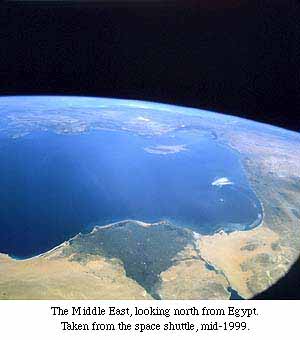|

http://www.greenstar.org/Feb00-Update/ Thank you! As of February 3, 2000, almost 700 people from around the world have downloaded the mysterious, beautiful MP3 music from Al-Kaabneh, Greenstar's pilot solar installation on the West Bank, Palestine. Thanks for your universally-positive response and reviews...if you haven't retrieved your free digital download yet, here's the link: 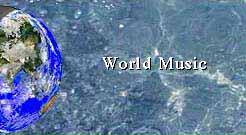 Subscription to this Greenstar Newsletter has just topped
1500 people, from over 50 different countries around the world.
Let us know how we can serve you better, by sending an email
to editor@greenstar.org
http://www.e-greenstar.com/premium-partner/info.htm
 and economic development site
During a recent weeklong visit to Jamaica by Jock Gill, one of the Directors of Greenstar, the foundation was laid for a new investment in digital culture and ecommerce in Jamaica.
Although economically poor, Swift River is rich in traditional culture, including music, artwork, poetry and local legends that go back to the late 15th century. Some of the traditions and languages brought over from Africa in the slave trade are even older. It is from these deep cultural roots that reggae culture, appreciated today around the world, originally grew. Greenstar will seek out these roots and make them available, as digital culture products on the Internet for the world to appreciate.
On Earth Day, people around the world will be able to hear the joyous voices and celebrate the vivid images of the people in the mountains of Portland. The world will see Portlanders creating new paths for Jamaicans working together for greater prosperity with ever more personal freedom and choice. A future issue of the Greenstar Newsletter will provide details, and more photos. http://www.e-greenstar.com/Jamaica/  editing and presentation by Michael North http://www.greenstar.org/microcredit/ is available in Acrobat (PDF) format: http://www.greenstar.org/microcredit/microcredit-brief.pdf Quotable Quote "Many of us see the millions of impoverished people in the world as a seemingly unsolvable 'problem'. However, we should see them as the world's largest untapped source of entrepreneurs and consumers." - Muhammad Yunus, founder of Grameen
Bank of Bangladesh, Basic Definition: Microcredit (mI-[*]Kro'kre-dit); noun; programmes extend small loans to very poor people for self-employment projects that generate income, allowing them to care for themselves and their families. source: http://www.microcreditsummit.org
Background: Developed over the last twenty years, microcredit is one of the most effective tools we have to fight poverty. It's not charity, but investment, and to understand it we need to look at poverty in the world today. More than one out of five people in the world --1.3 billion people-- struggle to live on less than $1 a day. They are trapped in poverty so severe they cannot adequately feed, clothe, or shelter themselves or their families. More than half the global population -- 3.2 billion -- survive on less than $400 a year per capita. Steady jobs and income elude the very poor. To get by, many people create and run their own tiny businesses --"micro-enterprises"-- in the unregulated, "informal" sector. They might sell produce at the market, or shine shoes, weave mats, or bake bread. Micro-enterprises may be small, but their cumulative impact is huge: depending on the country, micro-enterprises employ an estimated 30-80 percent of the working population. Microcredit --also called "microfinance" and "microlending"-- means providing small working capital loans to the self-employed poor. Even small amounts of capital -- typically $50 to $300 -- can make the difference between absolute poverty and a thriving little business generating enough income to feed the family, send kids to school, and build decent housing. source: The Foundation for International Community Assistance (FINCA) at http://www.villagebanking.org
Real People:
The Dominican Republic Altagracia Damian started a tiny ceramics business in the Dominican Republic. When she started her business in 1987, she had only 16 cents in her pocket. After a few years of minimal operation, Altagracia went to ADEMI for a loan. She received $80 which she used to purchase clay and glazes. Since then, she has received a total of eight loans from ADEMI. Although Altagracia herself doesn't draw a fixed salary, she now has seven employees working in her business. She says that thanks to the support of ADEMI, she has been able to climb out of extreme poverty and manage a growing business, while paying for her children's education.
Sri Lanka When Alice Pallewela of Sri Lanka needed money to support her family, she turned to what she knew--candy and her credit union. This unlikely combination changed her life and her village's perception of its credit union. After Pallewela married, her husband, a government employee, transferred to Yodagama, which was once an ancient village during the time when kings ruled Sri Lanka. Today, this tiny hamlet, in the Ratnapura District, attracts Sri Lankans from the south, who have settled in Yodagama under the government's agricultural colony scheme. "Not everyone can be a farmer. Some have to be artisans and microentrepreneurs. I knew I needed to start my own business to supplement my husband's small salary," explained Pallewela. After she decided to go into business for herself, Pallewela needed to choose what type of business. She said that choice was easy. It had to be candy. "I've always loved sweets. I especially enjoy the traditional preparations done during the festival seasons." It proved to be the right niche; the closest candy seller was 50 miles away. After six months of data collection, Pallewela said she decided to sell only a few kinds of candy, those that could be produced using locally available raw materials. She now needed to purchase some equipment. Pallewela's credit union granted her request for a loan--US$100. "The credit union was there for me from the beginning, offering me both technical advice and the credit necessary to build my candy business." Pallewela's business now draws enough profit for her to save regularly, allowing her credit union to lend to other microentrepreneurs. In fact, since first helping Pallewela, the credit union's membership has grown; nothing is more powerful than word-of-mouth endorsements. As for Pallewela's business, she now employs six young women, all of whom have become partners, and her product is recognized as one of good quality in the market. "I own a business--something many only dream of doing. But I no longer have to dream thanks to my credit union."
Poland Katakana Strzelinska is 24 and lives in a working-class district in Lodz, the traditional textile center of Poland. Many factories have closed, leaving many people unemployed, especially women skilled in sewing. During her school days Katarzyna used to work alongside her mother as a quality controller in a company that made tights. Later she discovered that it was possible to make tights at home out of rejects from Western European factories. In April 1995 Katarzyna set up her own company with 500zl (US$180) as capital. With this money she bought reject goods to rework. Her mother, grandmother, and aunt all helped with the work. "I had no chance of getting a loan from a bank," said Katarzyna. "From their point of view, I had nothing to guarantee any loans with. We worked day and night, but we had no chance of any further money to invest in the business for future growth." With her first loan of 2,000zl (US$700), she bought raw materials and a secondhand overlook machine to make tights. "My production increased by a factor of two or three," says Katarzyna. "We produced cheap nylon tights and more expensive ones with lycra and satin. I started to sell to a couple of shops, as well as market stalls. The monthly installments let me plan for my future bills and stocks. I feel so much more secure." source: http://www.microcreditsummit.org/stories/intro.htm
The Vision Excerpts from a speech made by Mohammed Yunus of the Grameen Bank to the Microcredit Summit Opening Plenary in Washington, D.C., February 2, 1997
This summit is about setting the stage to unleash human creativity and endeavor of the poor. This summit is to guarantee every poor person the chance to undertake responsibility to establish his and her own human dignity. This summit is to celebrate the success of millions of determined women who transformed their lives from extreme poverty to dignified self-sufficiency through entering into micro-credit programmes. We believe that poverty does not belong to a civilized human society. It belongs to museums. This summit is about creating a process which will send poverty to the museum. Only sixty-five years after the 12 second flight of the Wright brothers, man went to the moon. Fifty-five years after this summit, we'll also go to our moon. We'll create a poverty-free world. source: http://www.grameen.org/bank/bankc3a.htm
What good can a very small loan do? To the poorest microentrepreneurs in the developing world, $50 is a fortune. They can invest that money to make their labors far more productive: they might buy a used sewing machine so that they can make dresses faster than by hand-stitching. They might invest in a used refrigerator to keep the produce they sell from going bad overnight. They might buy thread for weaving in bulk, at wholesale prices, so they make more on every item. So far, 13 million microentrepreneurs worldwide have benefited from microcredit, using their loans to increase their income and lift their families out of poverty. But there remain 200 million families who work hard, but cannot access affordable credit. source: http://www.villagebanking.org/village.htm#microfinance
The Limits Microfinance Institutions (MFI's) have made significant progress in providing credit and savings facilities to the poor. The extent to which these services are filling an important gap in poor communities is demonstrated by very high rates of repayment and rapid growth of demand for microfinance. Experience of these institutions shows that provisions of microfinancial services enables the poor to build strong microenterprises, to increase their income and to participate in economic growth. However, while the achievements of MFIs are being increasingly acknowledged, it is also becoming more and more apparent that although financial services are indispensable, they are not sufficient to alleviate poverty. The poor, more than a billion today, are deprived of the basic necessities of life. Poverty eradication implies improving every aspect of life of this segment of the population, unable to meet the basic needs. It involves ensuring greater access to productive resources, such as land, capital and technology as well as to opportunities to develop skills needed to improve the living conditions and participation in the decisions that affect their lives. Any effective strategy for poverty alleviation will have to move beyond financial and economic considerations and take into account the social and cultural dimension of development. The complex process of poverty alleviation cannot be resolved by successful intervention in any one area. While education for example, is vital for improving the quality of life, equality of educational opportunity will have little effect if access to financial resources and income generating opportunities are not made available. Similarly, well conceived programmes in the field of microfinance will have limited impact if illiteracy prevails at the present scale. source: http://www.unesco.org
The Banker's Perspective: Over 500 million of the world's economically active poor people run profitable micro and small businesses. Microentrepreneurs have shown that they repay market-based loans, and use the proceeds to increase their assets, their living standards and their roles in shaping societies. NGOs, other specialized financial institutions and some banks have shown that microlending can be a profitable business. Financial services to low income entrepreneurs may be the single most effective way to reduce poverty and achieve broad-based economic growth. Finance and enterprise systems that serve the majority can be the pivotal links and the levers, enabling the poor to share in economic growth and giving poor people the means to use social services. Macro reforms in financial systems need to be complemented by measures that encourage the institutions, instruments, relationships and financing arrangements geared to providing sound, responsive financial services to the majority of enterprises that have not had access. Experience around the world has shown that microentrepreneurs do not need subsidies and that microlenders cannot afford to subsidize borrowers. Low income entrepreneurs want rapid and continued access to financial services, rather than subsidies. source: http://www.worldbank.org/cgap/note3.htm
Who provides microfinance? Most commercial banks in the U.S. will not make small business loans below $10,000. For others, the minimum is $25,000. these amounts are similar in developing economies. But beginning entrepreneurs -- particularly low-income entrepreneurs -- cannot use such large sums of capital, nor can they afford to borrow such a sum. That's where microfinance, or microcredit, agencies, come in. These are non-profit organizations dedicated to reaching the poor with small loans that enable borrowers to work their way out of poverty. Today there are several large microcredit agencies, including the Grameen Bank, which lends to 2 million poor women in Bangladesh (http://www.grameen-info.org); ACCION, which works in North and South America (http://www.accion.org), and FINCA International, which works in 14 countries (http://www.villagebanking.org). Hundreds of smaller microcredit agencies are at work around the world -- some in a single country or region, some in a single neighborhood. Some charity organizations feature microcredit as one of their services. Microfinance is so successful in reducing poverty that even the World Bank and other major international institutions have increased their commitment to microlending, and there are new organizations engaging in microlending every day. source: http://www.villagebanking.org/village.htm#microfinance
Other important organizations either supporting or carrying out microfinance projects include:
Greenstar's Approach to Microcredit Greenstar's aim is to deliver a co-ordinated package of services, intended to benefit a developing community as a whole. The foundation for success is built on a basic preventive health care clinic; clean, safe, drinkable water; quality education for young people and training for adults; inexpensive, clean, solar power; access to computers and telecommunications; and strengthening local culture and pride. All these elements are tied together with an ecommerce program that provides a base of income for the community to continuously improve basic services for families. Each element is delivered to the community by a world-class organization specializing in its field, with a proven track record. This approach works best for small, off-the-grid traditional communities (where 1.3 billion people live), which is Greenstar's area of focus. On this foundation, productive microcredit programs can be built, which call on the power of family initiative to fire the entrepreneurial engine.
Virtual Library on Microcredit
A powerful online resource for information, news, research, economic studies, conference papers and proceedings, directories and links to microcredit websites is available: http://www.soc.titech.ac.jp/icm Maintained by the Dept. of Social Engineering, Tokyo Institute of Technology
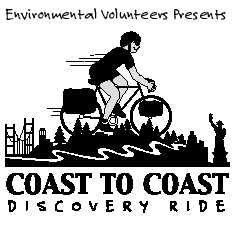 In May 2000, Michael Kahn of the Environmental Volunteers will bicycle solo from San Francisco to New England (over 4300 miles), camping out most of the way. On this journey he will explore the environmental and social diversity of the United States and document his discoveries. The bicycle used on the Coast to Coast Discovery Ride will be equipped with a small solar array provided by Greenstar, allowing Michael to recharge all of his electronic equipment without having to plug it in. The Coast to Coast Discovery Ride is an outreach benefit project of the Environmental Volunteers, a nonprofit organization in Palo Alto, California. Every day people all over the world will be able to come to the Evols website and check out the latest learning adventures from Michael's ride. If you would like to receive email updates about the Coast to Coast Discovery Ride please send an email to discoveryride@evols.org. 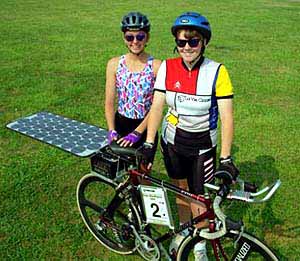
something positive on the Web
The Web makes instant participation not only easy, but potentially profitable. A new type of site has emerged in the past year: a click-and-give website, supported by advertisers. The idea is that advertisers make a "donation" to an important cause that you select, when you visit a certain site, or buy a product. Here we highlight three of the more ingenious applications of this idea:  http://www.hungersite.com Visit this site, click on the donation button, and sponsors make a donation that supports efforts to reduce hunger. Donations of rice, wheat, maize or other staple food are delivered by the well-respected United Nations World Food Program. Totals for January 2000 were over 8.9 million visitors, yielding 22.6 million cups of food (nearly 1.3 metric tons).
 http://rainforest.care2.com/ Sponsors of this site donate approximately $.005 per click to the Nature Conservancy's "Adopt an Acre" program. These funds are used to protect acres of virgin rainforest in the Tariquía National Flora and Fauna Reserve, one of the largest protected areas in Bolivia, from commercial development. You can keep track of how much rainforest you save. Just begun in mid-January 2000, in its first two weeks this site saved 125 acres of rainforest, with well over 33,000 visitors.
 http://www.greatergood.com/ Do online shopping at a wide variety of first- class online stores, and a portion of your purchase (5-15%) will be donated to the charity of your choice. Over 50 stores, and over 20 well- known charities, participate.
To unsubscribe from the Greenstar Newsletter at any time, send an email with "unsubscribe" as the subject to unsubscribe@greenstar.org Thanks for your support, ideas and commentary! We are building a substantial database of resources for Greenstar's investments around the world -- over 200 resources now. To contact us, send email to editor@greenstar.org.
|





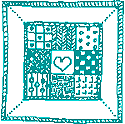
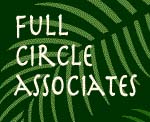
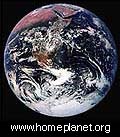

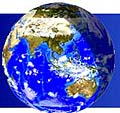


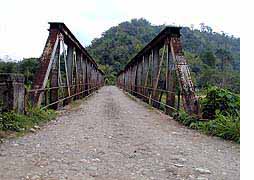 After meeting with a senior Jamaica
Government minister and a Member of Parliament, as well as local
business and community leaders, Jock spent several days traveling
in remote mountain areas of the Portland district. Swift River,
a beautiful village in a magnificent river setting, was of particular
interest.
After meeting with a senior Jamaica
Government minister and a Member of Parliament, as well as local
business and community leaders, Jock spent several days traveling
in remote mountain areas of the Portland district. Swift River,
a beautiful village in a magnificent river setting, was of particular
interest.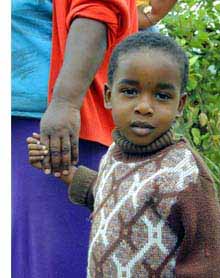 In conjunction with Earth Day
2000 on April 22, Greenstar will bring a small solar array, a
computer, a digital recording studio, an artwork program and
a team of local experts and business partners into the green
hills of Jamaica.
In conjunction with Earth Day
2000 on April 22, Greenstar will bring a small solar array, a
computer, a digital recording studio, an artwork program and
a team of local experts and business partners into the green
hills of Jamaica.